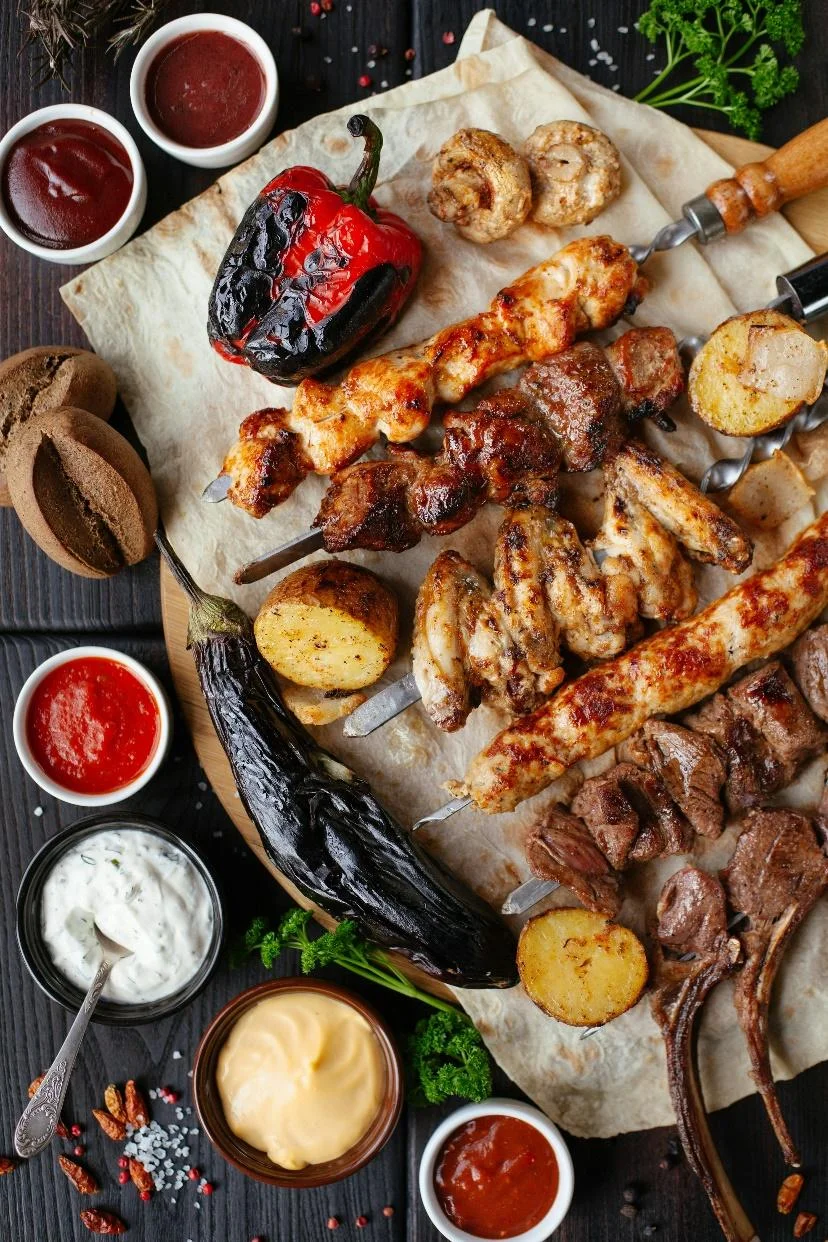Have you ever looked at photos of meals from Greece or Italy and thought, how can something this delicious be healthy?
That’s the magic of the Mediterranean diet. It brings together flavor, freshness, and well-being into one way of eating that’s been loved for generations.
If you’ve been asking yourself what is the Mediterranean diet, or wondering if it’s right for your health goals, you’re in the right place. It’s not just another diet trend.
This guide breaks down what is a Mediterranean diet, the core foods it includes, how it can support your health, and easy tips to get started.
The Origins of the Mediterranean Diet
The Mediterranean diet is inspired by the traditional food patterns of people in countries like Greece, Italy, Spain, and parts of the Middle East and North Africa. These regions are known for their warm climates, fresh produce, and long family meals.
Back in the 1960s, researchers noticed that people in these areas had low rates of heart disease, diabetes, and obesity. Yet, they were eating pasta, bread, and even drinking wine. The key difference was in the quality of their food and their lifestyle.
Their meals were filled with fiber, plant-based ingredients, and healthy fats, which make them perfect for breakfast. And they walked more, spent time outside, and ate meals together at the table.
Understanding the Mediterranean Diet Pyramid
Nutrition experts created the Mediterranean diet pyramid to explain how this way of eating works. At the bottom of the pyramid are the foods you should eat most often. These include vegetables, fruits, whole grains, legumes like beans and lentils, nuts, seeds, herbs, and extra virgin olive oil. These foods form the foundation of your meals.
Next comes fish and seafood, which are packed with lean protein and healthy omega-3 fats. These are great for your heart and should be eaten a few times a week.
Above that, you’ll find moderate amounts of dairy, eggs, and poultry. These can be included regularly, but in smaller amounts. At the top of the pyramid are red meats and sweets. These are meant to be enjoyed once in a while, not every day.
Water, physical activity, and shared meals are also important parts of the pyramid. That’s what makes the Mediterranean style diet more than just food. It’s about creating a healthy and balanced lifestyle.
Mediterranean Diet for Weight Loss
Many people turn to the Mediterranean diet for weight loss, and it’s easy to see why. It doesn’t involve cutting out entire food groups or extreme restrictions. Instead, it focuses on eating real, whole foods that fill you up and fuel your body.
Vegetables, beans, whole grains, and healthy fats help keep you satisfied for longer. You’re less likely to snack on empty calories when you’ve had a hearty meal with grilled vegetables, brown rice, chickpeas, and a drizzle of olive oil.
Because the diet is rich in fiber and low in added sugars, it helps support steady blood sugar levels. This can reduce cravings and support fat loss over time. Plus, it encourages mindful eating, which means you’re more in tune with your hunger and fullness cues.
If your goal is weight loss, the Mediterranean diet can work well without making you feel deprived. It’s a long-term, sustainable option that fits easily into daily life.
Mediterranean Diet Benefits for Your Health
There are many proven Mediterranean diet benefits, and they go far beyond weight loss. This way of eating supports heart health, brain function, and even mood.
Studies show that people who follow a Mediterranean diet have a lower risk of heart disease and stroke. This is because it includes healthy fats like olive oil and fish, which help reduce inflammation and improve cholesterol levels.
The diet is also good for your brain. Foods like leafy greens, nuts, berries, and olive oil have been linked to better memory and a reduced risk of cognitive decline. In fact, some researchers believe the Mediterranean diet can help protect against Alzheimer’s and other forms of dementia.
Because the diet focuses on fresh food and avoids processed items, it also helps with digestion and gut health. Many followers report better energy, better sleep, and an overall improvement in how they feel day to day.
What You Eat on a Mediterranean Style Diet?
The Mediterranean style diet is all about balance and variety. You don’t have to eat the same meals over and over. Instead, you have the freedom to enjoy different flavors and ingredients while sticking to the core principles.
You’ll eat plenty of vegetables like tomatoes, cucumbers, peppers, spinach, and eggplant. Fruits like oranges, grapes, berries, and figs are common too. Whole grains such as oats, barley, brown rice, and whole grain bread are part of everyday meals.
Beans and lentils are important sources of protein and fiber. You’ll also use nuts and seeds like almonds, walnuts, and sunflower seeds. Olive oil is the main fat used in cooking and for dressing salads.
Fish such as salmon, sardines, and mackerel are eaten a few times a week. Poultry, eggs, and dairy like yogurt and cheese are included in moderation. Red meat is enjoyed only occasionally, often for special meals.
Wine can be enjoyed with meals, but always in moderation. And don’t forget the social side of the Mediterranean diet. Eating with others, slowing down, and enjoying your food is just as important as what’s on your plate.
How to Start a Mediterranean Diet?
You don’t need to move to Greece or learn a whole new way of cooking to follow this diet. You can start small and build from there.
Begin by swapping out processed snacks for fruits, nuts, or olives. Use olive oil instead of butter or margarine. Add more vegetables to your meals, even if it’s just a side salad or some grilled zucchini. Choose fish a couple of times a week instead of red meat. And try to cook more meals at home using fresh ingredients.
Focus on creating meals that are colorful, fresh, and full of flavor. You’ll quickly notice that the Mediterranean diet doesn’t feel like a diet at all. It feels like real, satisfying food that supports your health and makes you feel good.
Conclusion
If you’ve been wondering what is the Mediterranean diet, now you know it’s much more than just a food plan. It’s a balanced, flexible way of eating that’s backed by science and loved by cultures around the world. With the Mediterranean diet pyramid as your guide and a focus on whole foods, you can improve your health while enjoying every bite.
Whether your goal is better health, more energy, or gentle weight loss, the Mediterranean style diet can help you get there. And the best part is, it doesn’t feel like work. It feels like life. Real food, real joy, and real results.
Frequently Asked Questions
What is the Mediterranean diet in simple terms?
The Mediterranean diet is a way of eating inspired by the traditional foods and lifestyles of countries around the Mediterranean Sea. It emphasizes vegetables, fruits, whole grains, legumes, nuts, seeds, olive oil, and lean proteins like fish, while limiting processed foods and red meats.
Is the Mediterranean diet effective for weight loss?
Yes. Thanks to its focus on fiber-rich foods and healthy fats, the Mediterranean diet helps control hunger and supports steady weight loss without strict calorie counting or extreme food restrictions.
Can you follow a Mediterranean diet if you're vegetarian or vegan?
Absolutely. While the traditional Mediterranean diet includes fish and some poultry, it’s easy to adapt it for vegetarians and vegans by focusing on plant-based proteins like beans, lentils, nuts, seeds, and whole grains, along with plenty of vegetables and fruits.
How often should you eat fish on the Mediterranean diet?
No, wine is not mandatory. While moderate wine consumption is a part of some Mediterranean traditions, you can still enjoy all the benefits of the Mediterranean style diet without alcohol. Water, herbal teas, and other healthy beverages are perfectly fine.
What are the main benefits of the Mediterranean diet beyond weight loss?
The Mediterranean diet supports heart health, brain function, digestive health, and may lower the risk of chronic diseases like type 2 diabetes and certain cancers. It’s also linked to better mood, longevity, and overall vitality.







